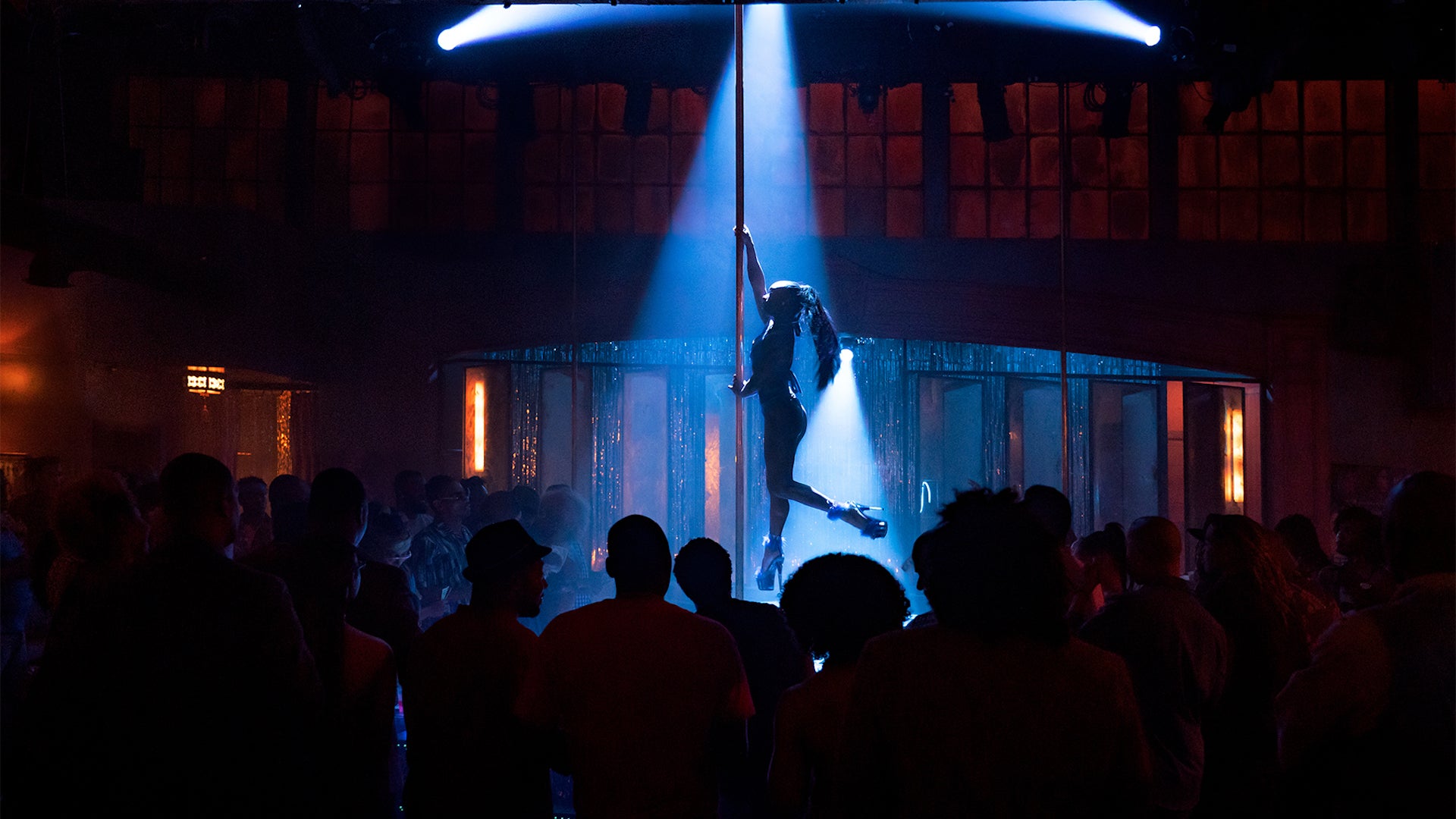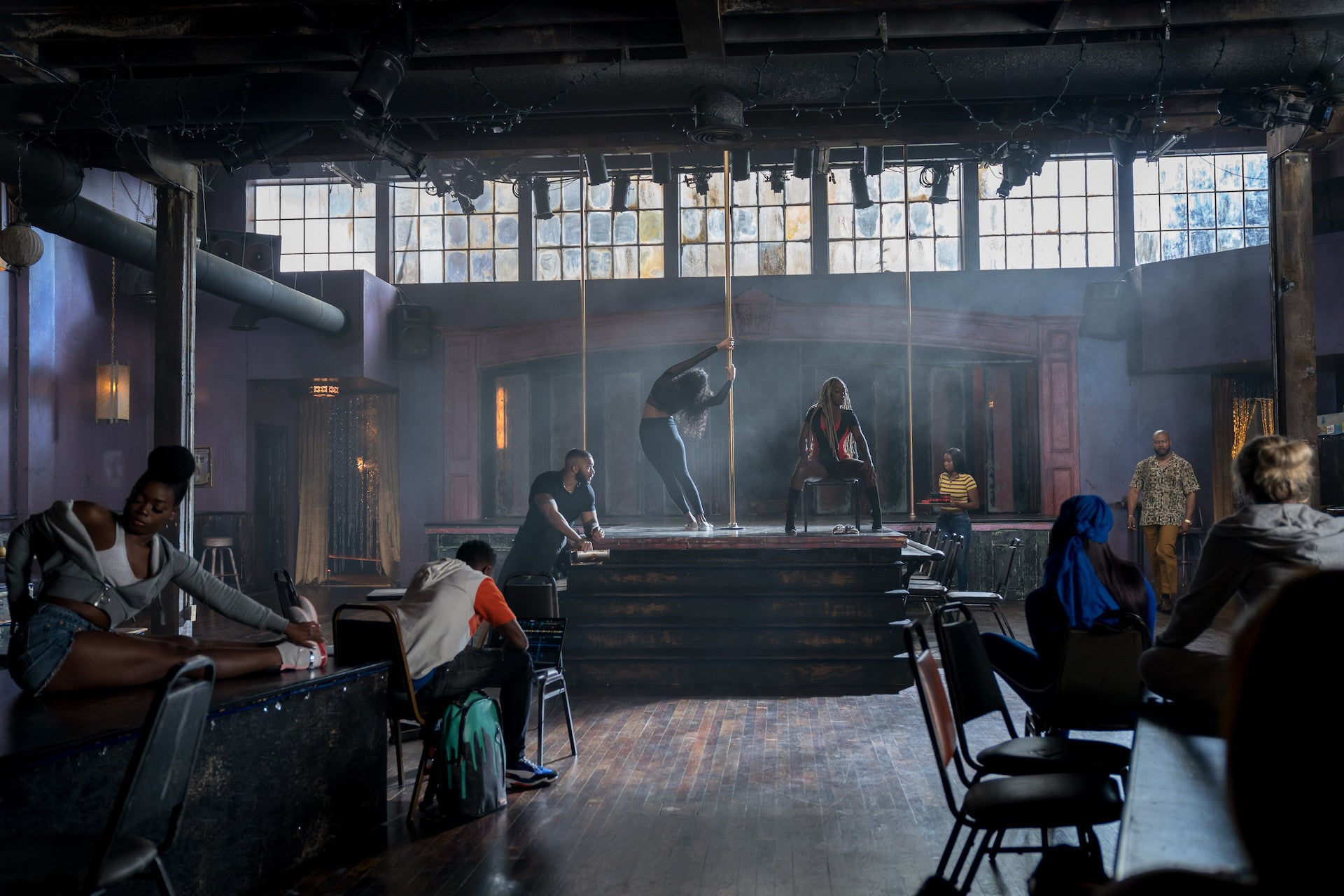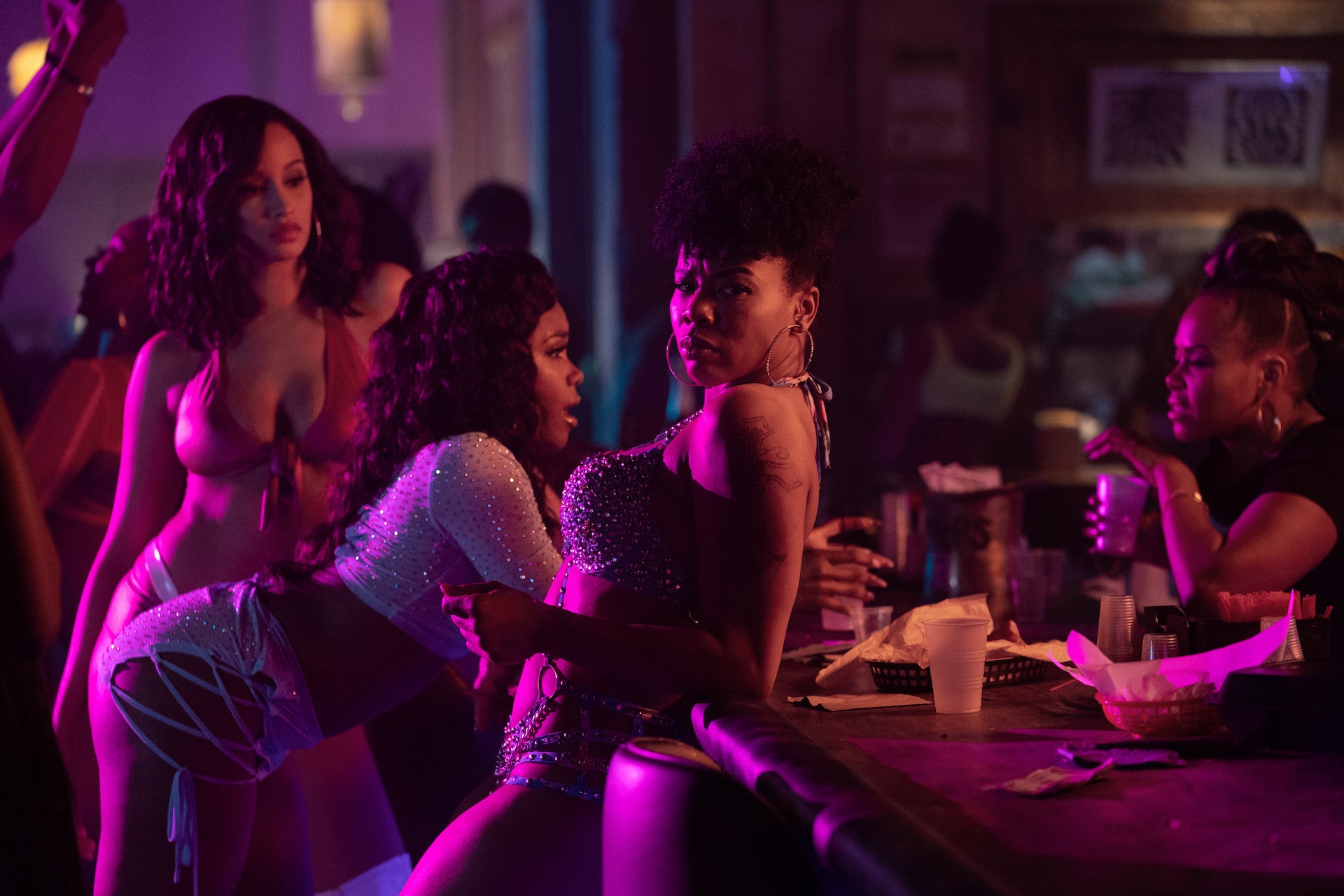
What do you get when the Player’s Club meets Claws with a little bit of Set It Off? This summer’s newest must-see television series.
Starz newest drama series takes us behind the scenes at a strip club. And as simple as that may sound, it’s good. The show, titled P-Valley, comes from a Black woman — playwright Katori Hall (The Mountaintop) — and is an “unflinching and unapologetic look” at the lives of women working at a Mississippi club called The Pynk.
The characters are as lovable as they are complicated, and by the second episode you’ll be hooked. The show introduces us to newcomers, such as Brandee Evans, who plays the O.G. of the strip club, Mercedes; Elarica Johnson, who embodies Autumn Night, who is learning the ropes and Nicco Annan, who portrays Uncle Clifford, the boss trying to save the club from the effects of gentrification. You’ll also recognize a few familiar faces: J. Alphonse Nicholson (Lil Murda) joins the cast following Just Mercy and Self-Made: Inspired by the Life of Madam C.J. Walker, while you may also remember Parker Sawyers (Andre Watkins) as the young Barack Obama in the film Southside With You.
This show is about four years in the making at Starz, and let us tell you — it’s every bit worth the wait. For ESSENCE, showrunner Katori Hall took us behind the scenes on what we can expect this season and explains why P-Valley, based on her play Pussy Valley, is not just another strip club story.
ESSENCE: Why do you think P-Valley is an important story to tell?
Katori Hall: A lot of people have questions [as to] why I would want to step into a world in which it could easily be misrepresented and misconstrued, especially knowing that long and torrid legacy that we as Black women inherit when it comes to a long litany of those hyper sexualized images. I have always felt like I wanted to create a story and a world that could really dismantle and push up against that particular heritage in that we all know that the business of desire exists. It is a billion dollar business, and it is a business that all women sometimes freely participate in, and then there’s some women where it’s imposed upon them.
I felt like it was also an important time in the wake of the #MeToo movement. [In] this moment where women–who have been dehumanized historically, women who have been made to feel ashamed of their body and their choices and made to feel ashamed of choices that were imposed upon them–I felt like it was high time to give them voice; high time to give them agency in telling their own story. The lives of all women are valid and worthy of exploration. In this moment where a lot of people are screaming to be heard, and screaming to be understood, it just felt time to give a platform to women who have been marginalized within their own community; to show who they are and that they are human beings. They are not just flesh and bones — they have lives and have dreams. It doesn’t matter if you are in the White House or on the pole, every woman’s story is worthy of being told.

You have an extensive theater career as a playwright. Was the creative process different in bringing this to television?
Yes, it was extremely different turning Pussy Valley into P-Valley. Coming from theater, the playwright is considered “the goddess.” Words can’t change unless the goddess confirms changes. It’s a somewhat collaborative medium, but it’s stemming from a singular voice and singular vision. You go into the TV lane and it is very collaborative, even from the writing of the episode. I had an extremely diverse room of up to seven writers and everyone’s ideas are using their lived experience to tell new stories and new explorations of the characters. I was grateful to have more of a group…when it came to building out the world because it has so many layers; because the cast is very sprawling and it has all these cracks and crevices that we wanted to dig into. So it was helpful to have multiple hands on the wheel in terms of creating it.
Strip club culture…is nuanced. It’s a space that is extremely exploitative. There is interesting tension between liberation and exploitation.
In terms of the difference in production, with theater you have three weeks to rehearse and then all of a sudden it’s up every night in front of a live audience. With a TV show, the fact that you’ve got takes and different opportunities to make things better, and the fact that you can edit in such a way that you can blend time really allowed us to expand the story and expand the world.
You are the creator, showrunner and executive producer. Longtime music video director Karena Evans, who’s worked with Drake, directed the premiere. What other roles did Black women play in the production of the show?
I had another co-executive producer named Khaliah Neal, who now works for Michael B. Jordan’s company. She has been pivotal since the beginning because she is actually one of the original producers that I was going out and pitching the show with. I had a line producer that was a Black woman — her name is Montez Monroe. I have a Black female executive named Susan Lewis, who was our point person at the network. We had Black women running the hair department and the makeup department. We had a Black woman scouting locations. We had a Black woman doing the choreography. Quite frankly, Black lady hands were all over this. We had a lot of women in power positions.

Are you afraid that this will be compared to other beloved strip club films such as The Player’s Club and Hustlers?
I’m not afraid because I feel like the piece is definitely in conversation with the predecessors — The Player’s Club specifically. It’s emblematic of the strip club culture that has had such an impact on mainstream pop culture: the fact that Cardi B blew up and Hustlers came out and then we saw J. Lo on the pole during the Super Bowl. We are in a long line of work that has looked at sex work and the strip club culture that is nuanced. I’m actually happy that there are women who can speak to the experience — like Cardi B — and talk about the pros and cons. It’s a space that is extremely exploitative. There is interesting tension between liberation and exploitation because I have seen women who were able to pull themselves out of poverty or get out of bad relationships because they were able to have financial freedom in that space. I’m definitely not scared of being compared because it’s a very important conversation for us to keep on having. But I will say in the comparison that people will realize it is a very different way into talking about this world.
What do you want us to take away from the characters of P-Valley?
I want people to look at Uncle Clifford, Mercedes, Autumn Night, Miss Mississippi and see themselves. Every woman has a history that is extremely complicated, but unfortunately in the history of media, we haven’t always been given an opportunity to be seen as the complicated beings that we are. For me, this is a humanization project. This is to make people who go to the strip club, and all they see is breast and booty, leave and enter P-Valley, and finally say, ‘Oh my gosh, this woman that I dehumanized or I just didn’t see all of her humanity, she is a person who hurts and who dreams.’ For me, it’s about making these unreal characters create a bridge of empathy and understanding for women who haven’t had that opportunity to be seen as the full body beings that they are.
P-Valley premieres July 12 on Starz. This interview has been edited for clarity.